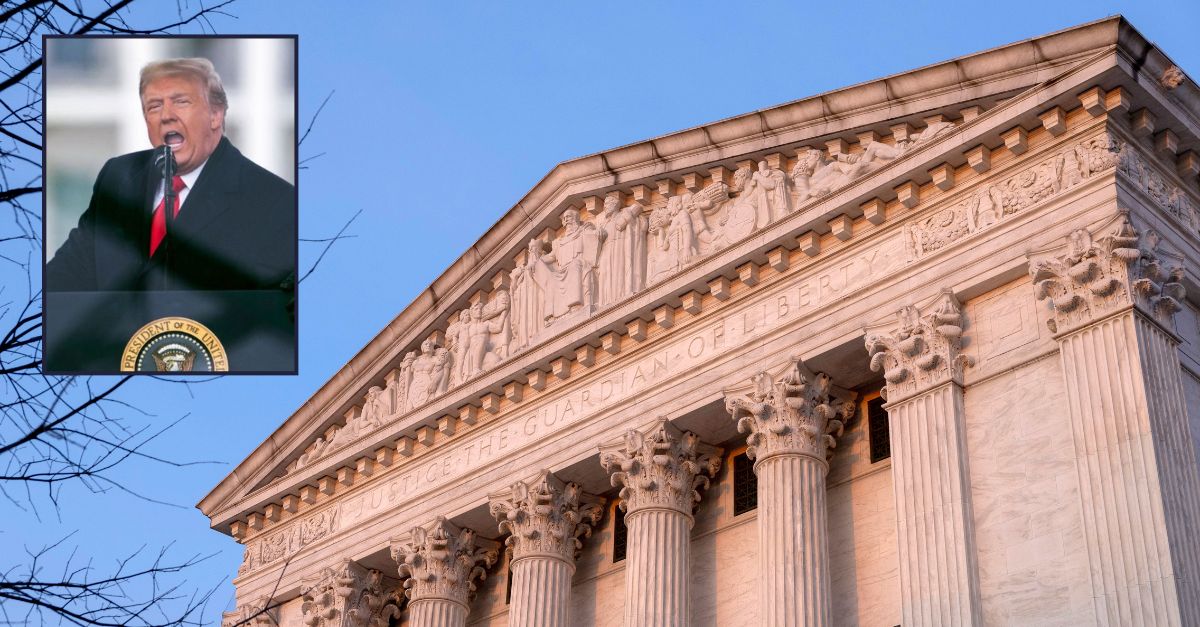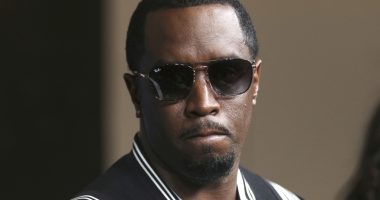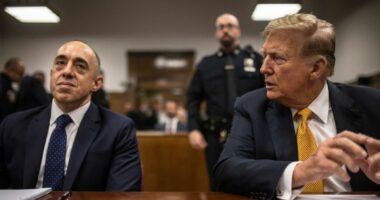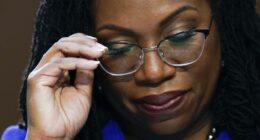
FILE – The Supreme Court of the United States is seen in Washington, March 26, 2024 (AP Photo/Amanda Andrade-Rhoades, File). Inset: FILE – President Donald Trump speaks during a rally protesting the Electoral College certification of Joe Biden as President in Washington, Jan. 6, 2021 (AP Photo/Evan Vucci, File).
After a string of delayed court dates and a criminal conviction added to his name, former President Donald Trump will not stand trial before the November presidential election for his federal felony charges. This indictment reflected his efforts to overturn the 2020 election results, after his loss to President Joe Biden, and the subsequent January 6 violent riot at the Capitol.
The Supreme Court’s broad immunity ruling issued on July 1 released Trump from prosecution and is the first time this has been granted to a former president. The conservative vote won out with a 6-3 ruling, with the opinion of the Court delivered by Chief Justice John Roberts.
Broad immunity shields Trump — and other presidents — from charges tied to their official acts and at least partially shields Trump against his post-election conduct. However, this term is based on the court’s interpretation of what an “official act” is defined as, and the burden is put on the prosecution to show evidence that it is not, in fact, an official act, but rather a personal and criminal one.
Ultimately, the decision indefinitely extends the delay in Trump’s trial regarding election interference. At best, it feels like a conflict of interest, and at worst, it sets a dangerous precedent, as he runs for another presidential term.
If Trump is elected as president for a second time, will he still be expected to answer to the charges against him for illegally trying to overturn the last election?
If so, what kind of message does that send to the American people and future politicians wishing to take the official oath? Regardless of any political position, no one should be above the law, particularly country leaders, nor should proceedings be delayed to favor them.
Does Trump meet basic job qualifications?
As of Aug. 2, the U.S. Supreme Court officially sent Trump’s federal election interference case back to U.S. District Judge Tanya Chutkan in Washington, D.C., who must now figure out how to implement the Supreme Court’s decision. Depending on her ruling, there could be an immediate appeal, and the case may end up right back where it started – in front of the Supreme Court.
What’s more is that should Trump lose the presidential election and does not concede a second time, what type of charges could be brought against him? Would he be immune to prosecution, or would he have to face consequences as a citizen and not a sitting president at the time would have committed the crime?
Trump is applying for a job with a background that brings red flags. Not only has he been indicted on multiple charges and convicted, but he was also impeached twice during his single presidential term. When reviewing his “resume” these facts alone don’t make him fit for the highest position in the country.
Conservatives attempt to move the finish line in their favor
While the hope is Trump remains the only president to be indicted, making the argument of “broad immunity” moot, there is a tone set about behavior allowed when trying to sway an election.
In May, the Supreme Court overturned a lower court’s ruling that South Carolina’s congressional map was an unconstitutional racial gerrymandering. In 2022, South Carolina’s racial gerrymandering congressional map moved hundreds of thousands of South Carolina voters to different congressional districts, including more than two-thirds of Black Charleston residents out of that county, which is the largest seat in the state.
In its 6-3 decision, the Supreme Court’s ruling said the state of South Carolina can continue its use of congressional mapping, which divides and reduces Black political voting power while increasing voters’ burden who challenge unconstitutional racial gerrymanders on a federal level.
The final vote should be left to the people
So, the message is that when things don’t go in their favor, conservatives are quick to change the rules to make sure they do.
With a conservative majority in the Supreme Court, it should come as no surprise the ruling in favor of broad immunity for a convicted presidential candidate and a state’s racial gerrymandering, but it should at least be cause for pause and kept in mind when entering the voting booth come November.
This is an opinion piece. The views expressed in this article are those of just the author.







